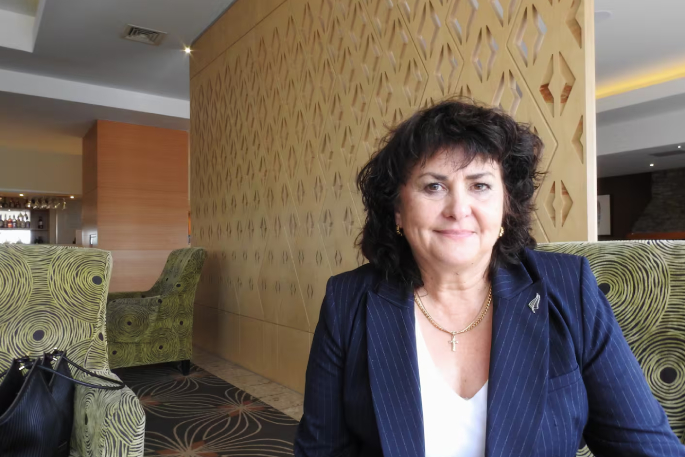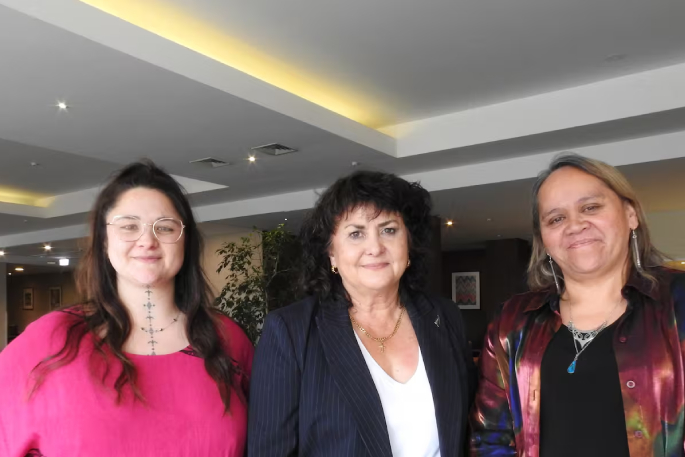Segina Te Ahuahu is proud her son is growing up travelling in a car that has never been smoked in – something she thought would never happen when she was growing up.
Segina is the group manager or kaihautu tipu ora at Rotorua’s Manaaki Ora Trust, which provides smokefree support among other wellbeing services.
She says she was a heavy smoker for over 20 years and felt proud her work at the trust helped break the habit for three generations of smokers in her family.
There is one year and four months left to reach the goal of the Stop Smoking 2025 Action Plan of having fewer than 5 per cent of Kiwis smoking by the end of 2025. It was born from a 2019 inquiry into the tobacco industry and the effects of tobacco use on Māori.
Manaaki Ora’s roll is 70 per cent Māori. Smokers wanting to quit or who have tried multiple times could always come back and receive support without a GP referral.
Segina says its patients had succeeded in smoking outcomes using vapes as a “harm reduction approach”.
The team connected with potential quitters at events like Te Matatini and offered stop-smoking resources like patches and gum when patients attended diabetes appointments.
-and-Chelsea-Richardson-from-Manaaki-Ora,-Rotorua..jpg) Segina Te Ahuahu (left) and Chelsea Richardson from Manaaki Ora, Rotorua. Photo / Aleyna Martinez.
Segina Te Ahuahu (left) and Chelsea Richardson from Manaaki Ora, Rotorua. Photo / Aleyna Martinez.
Manaaki Ora stop-smoking team leader Chelsea Richardson says she had whānau affected directly and indirectly by smoking, and had lost people to smoking-related illnesses.
“A majority of our practitioners here had whānau passing away from smoking-related illnesses,” Chelsea says.
The group’s work to decrease whānau smoking numbers was a wrap-around service and it would meet with “the whole whānau” if it was needed.
The annual NZ Health Survey 2022/23 found adult smoking across all ethnicities had declined with 6.8 per cent of adults being daily smokers in 2022-23, down from 8.6 per cent the previous year.
It found smoking remained heaviest in communities classified as “most deprived” but that smoking numbers there had also decreased to 10.7 per cent.
Daily smoking for adults in the least deprived neighborhoods dropped to 3.1 per cent.
Chelsea says she was determined to meet the stop-smoking goals for 2025 and says it caused ”māuiui” to her loved ones, meaning to be weary or sick.
“Our whānau and whakapapa is being impacted by the effects of smoking,” Chelsea says.
“Smoking is just one aspect of what is happening in someone’s life but if we can just get in and shift that, then we know there’s going to be positive change,” she says.
“We’re working for our community and we’re removing barriers,” Chelsea says.
Associate Minister for Health Casey Costello was in Rotorua last week asking local providers what they thought would be the best approach for moving the last portion of the population still smoking.
Some had been working on the national target for over 30 years, Te Ahuhahu says.
In the last three years, 229,000 people had quit smoking – 79,000 of them were Māōri adults.
Māori smoking rates had fallen to 17.1 per cent and Pasifika smokers to 6.4 per cent according to the 2022-23 New Zealand Health Survey.
Casey says her “inherited” portfolio would have achieved smoking cessation targets “by doing nothing” if trends continued.
She says that would not be across all population groups, however.
“We want to make sure we’re targeting high-needs groups and make sure they’ve got the support and services they need to quit.
“We need a big energy push into Māori and Pasifika communities,” she says.
 Associate Minister of Health Casey Costello expects a bill to prosecute businesses selling vape products unlawfully to be introduced in Parliament by the end of the month. Photo / Aleyna Martinez.
Associate Minister of Health Casey Costello expects a bill to prosecute businesses selling vape products unlawfully to be introduced in Parliament by the end of the month. Photo / Aleyna Martinez.
Excise tax increases were first introduced in 2010 she says, acknowledging criticism she received when she cut the excise tax on vape products to 50 per cent in July.
“In amongst all the noise we forgot to acknowledge that we’re almost there.”
Vaping has been a “big part” of the stop-smoking journey, she says.
A bill to prosecute vape retailers and businesses for selling vape products unlawfully would be introduced to Parliament at the end of August and she expected it to be law by the end of the year.
Current legislation would only allow those physically behind the counter to be prosecuted under the law.
“We want to make sure that what we put in place can be enforced, that it’s suitable and that it’s not going to create unintended consequences.”
She also says a stream of work to help those ready to quit vaping would be developed next.



0 comments
Leave a Comment
You must be logged in to make a comment.